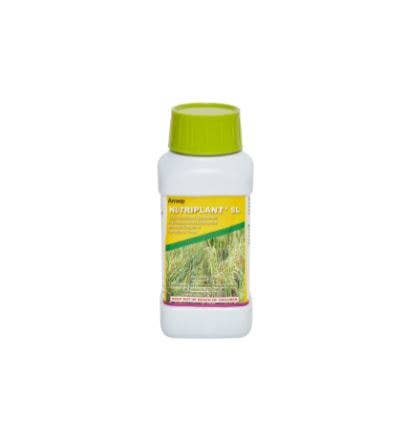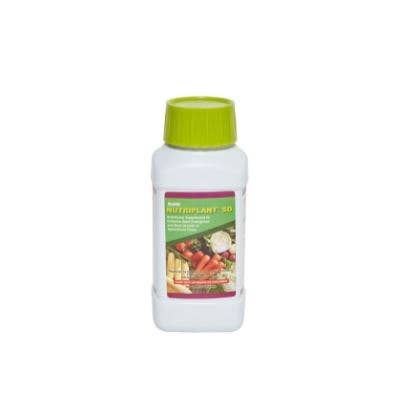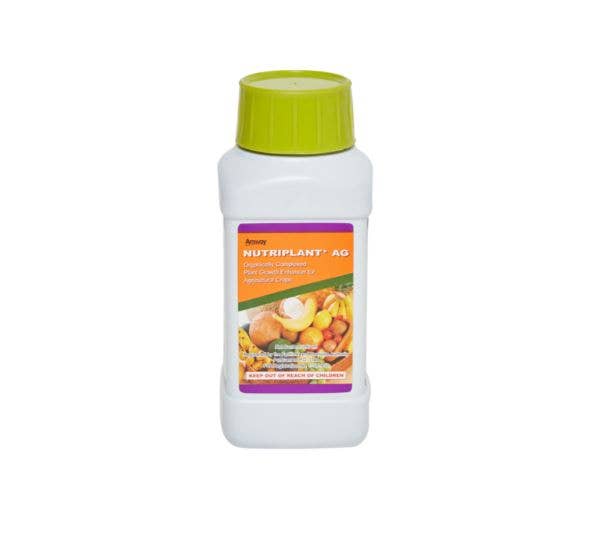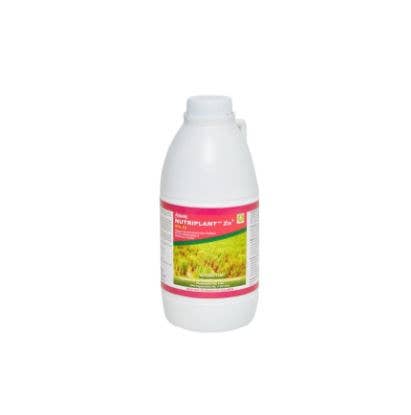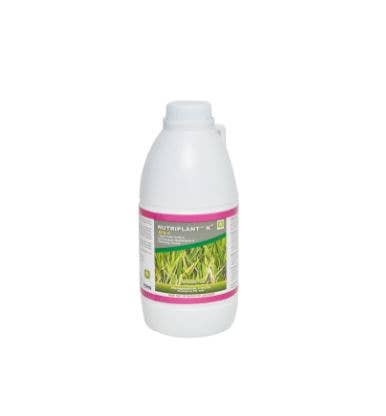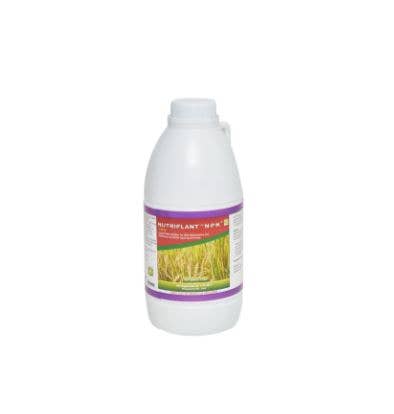WRITTEN BY KATHRYN ABBOT
Whether it’s in a plot of land in your own backyard or a small tray by your apartment’s balcony, there are many things you can benefit from by having your own garden. For example, you won’t need to spend as much at the grocery on spices, herbs, fruits and/or vegetables if you can grow them at home. Plus, you won’t have to worry about where they came from or how they were cultivated, too.
The only thing you need to worry about now is how to best care for your crops.
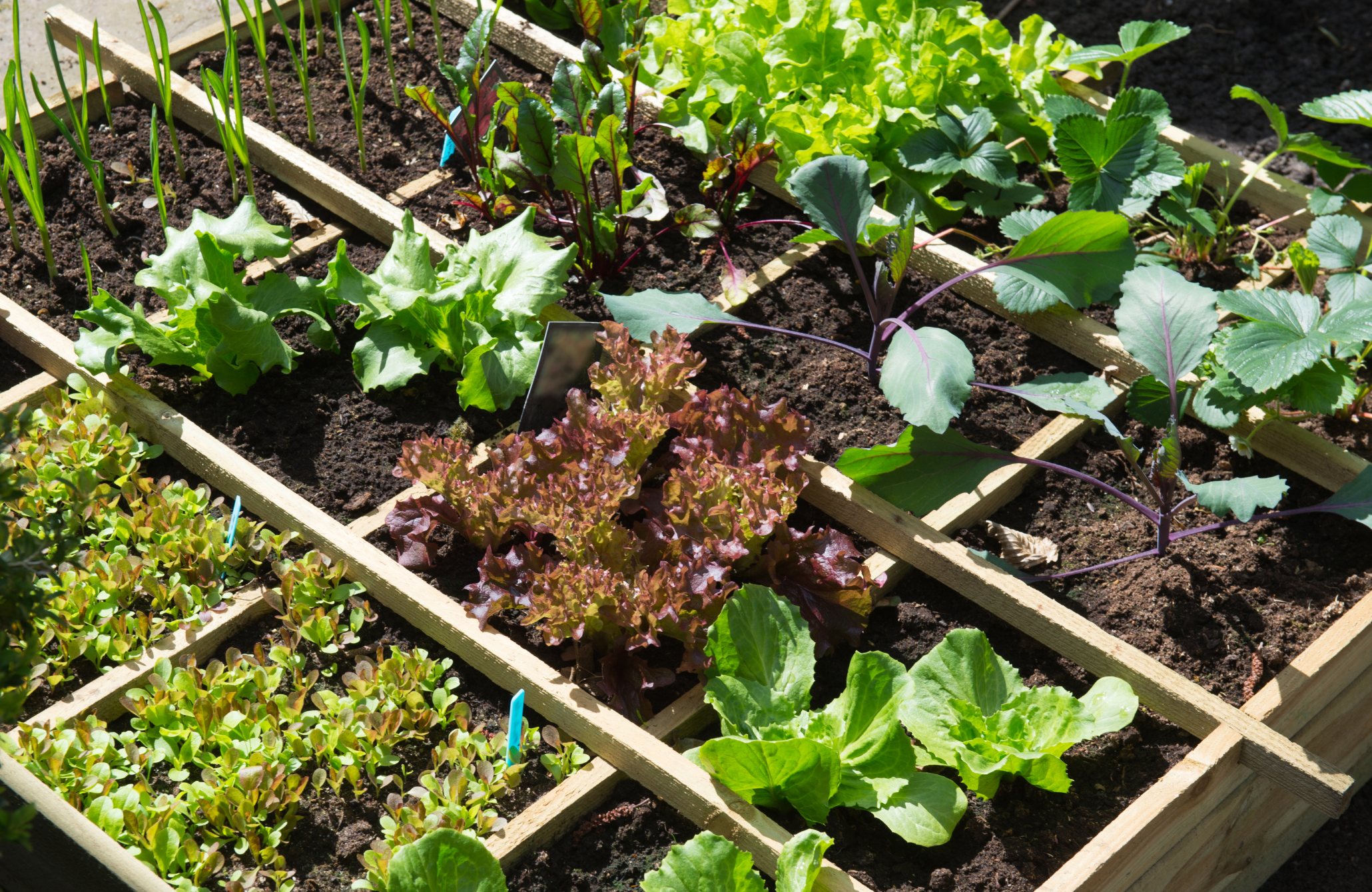
You’d need to make sure that your plants and the soil they grow in are healthy and viable in the long run, especially since your home gardens’ crops go into the food you and your loved ones eat. In short, you need to keep this question in mind when getting your gardening essentials:
How can I improve my plants’ nutrition without compromising my own health and safety?
Plants, Health, and Organic Crop Nutrition
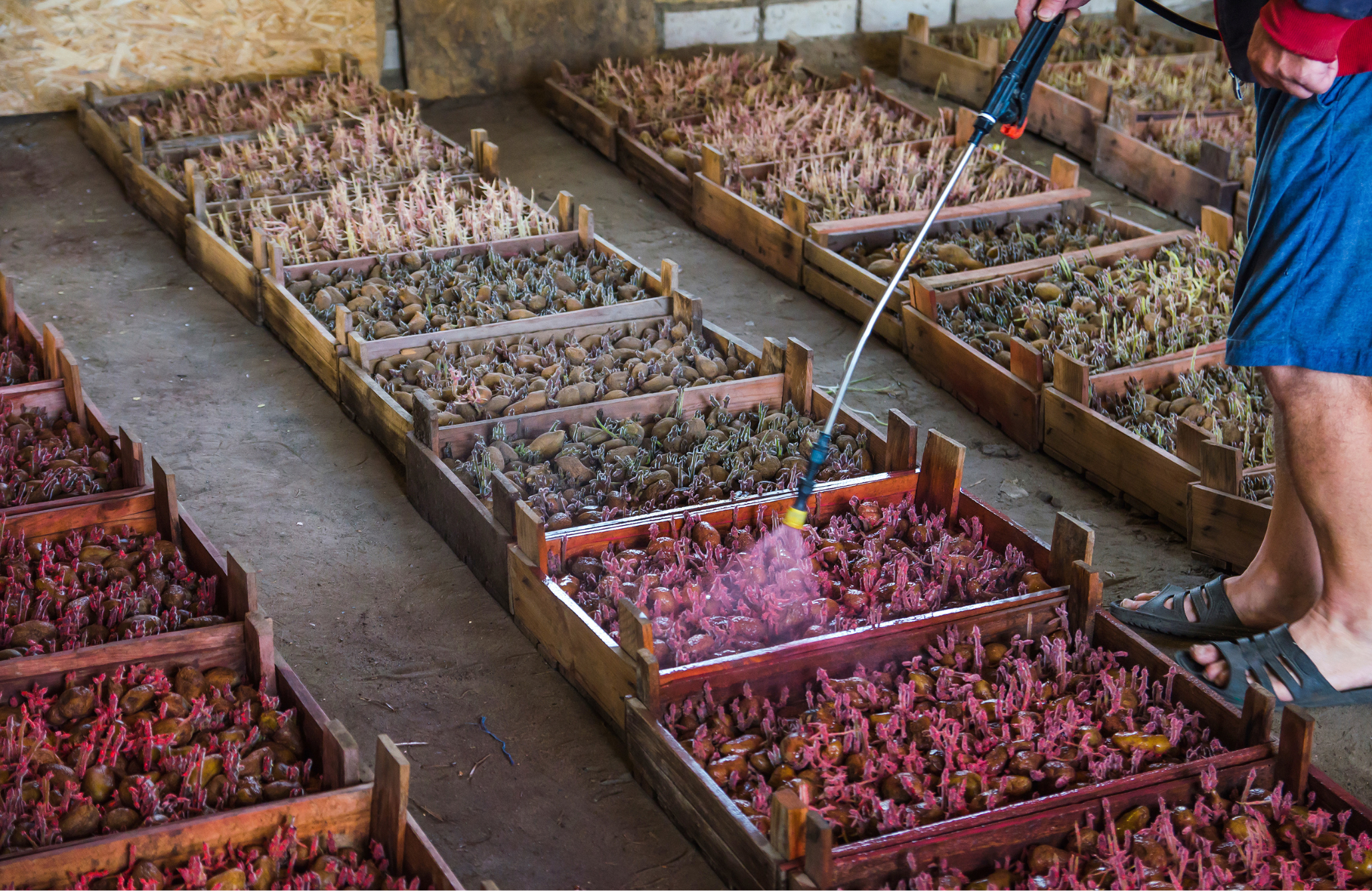
Let’s start with what you need to boost and secure your plants’ nutrition:
- Fertilizers and certain seed treatments, which provide nutrients for your plants and/or prep their seeds for better growth and more yield
- Seed treatments (insecticides and fungicides), which protect them from several pests and diseases
- Adjuvants, which enhance the effectiveness of either fertilizers and/or seed treatments
Many of them are often made synthetically and have produced positive effects and results, such as feeding plants the nutrients they need faster and preventing many seeds and seedlings from being overrun by insects or fungi. However, recent studies have shown that, while effective, synthetic versions of these tools are not always beneficial to the plants and even the soil they are applied on and may even negatively impact them. And, in extreme cases, these may affect human health as well.
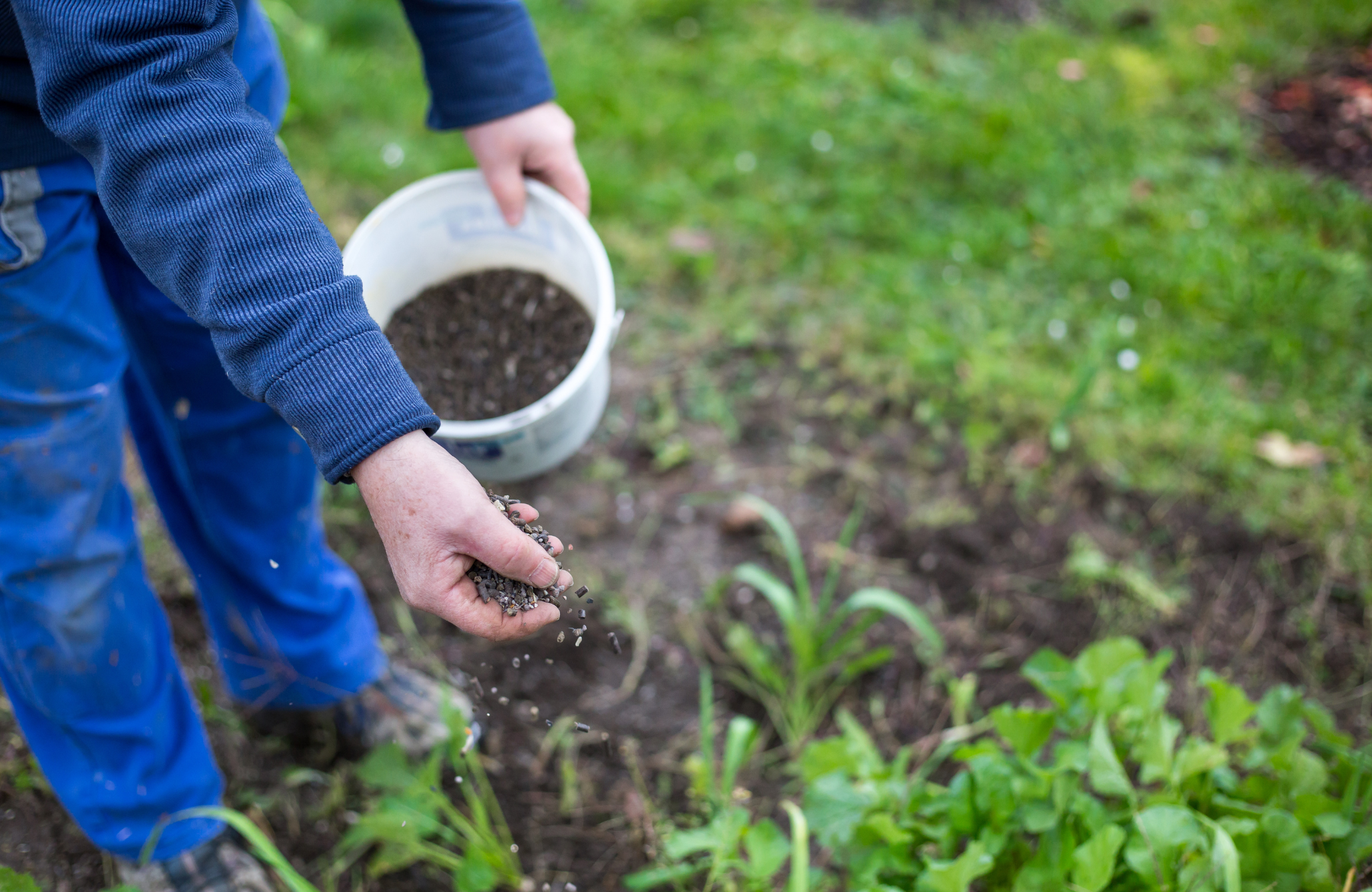
So, here is where organic choices come in.
Ever since the rise of more sustainable farming practices, many institutions have been working to find ways to nurture plants safely and effectively while working with the natural environment they are thriving in. Among those include using manure, compost and other animal or plant byproducts as ingredients for fertilizers or using more organic methods of seed treatments like priming and pelleting, all of which can lead to better plant nutrition by supporting both plant and soil health, and indirectly human health, in the long run.
Of course, you would not be able to get positive results as quickly as conventional means usually do. However, if you are looking for safer, healthier, and more viable long-term nutrition for your plants, then doing organic crop nutrition alongside conventional methods is the way to go.
After all, using organic plant nutrition is what helps us at Amway sustainably cultivate our own healthy and effective plant ingredients for many years. Inspired by this, we decided to build a brand that can help you nurture your plants with your health in mind.
Keep Your Plants Healthy and Strong with Nutriplant™
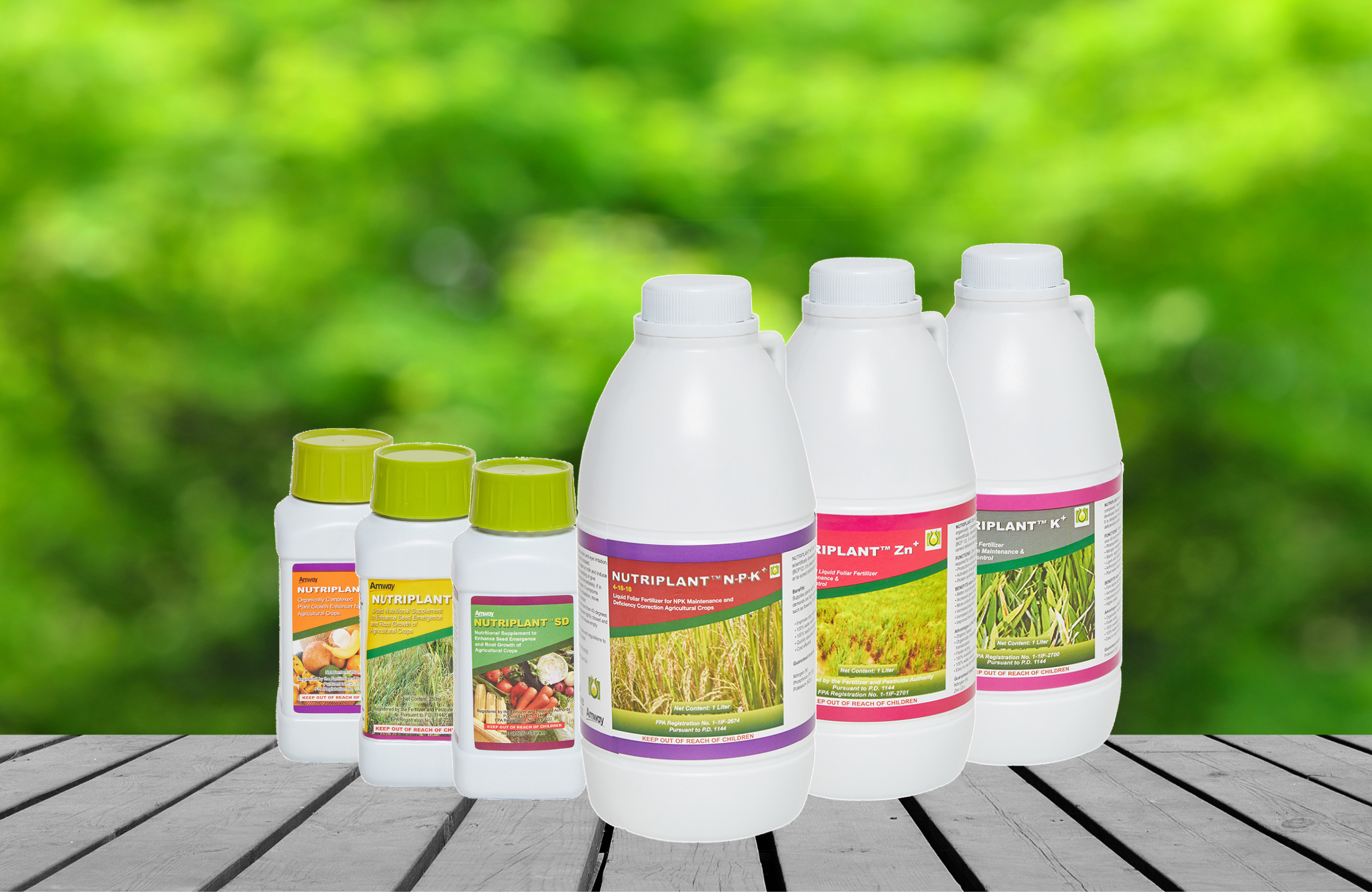
Combining the efficacy of natural ingredients and science through the Metabolically Active Compound (MAC) technology, *Nutriplant™, our line of farming products offers a whole host of tools and solutions that support your crop’s health while also nourishing your garden’s natural environment. Given how modern gardening requires a lot more than just water and compost, the brand and its plant-based products are there to meet your plant care needs, in more ways than one.
Nutriplant™ currently has six (6) items out now, which include Nutriplant™ SL (liquid), Nutriplant™ SD (powder), Nutriplant™ Zinc+, from Nutriplant™ N-P-K+, Nutriplant™ Potassium+, and the Nutriplant™ AG Plant Growth Enhancer. All of these are designed to support specific parts of your plants’ health in different ways and in more than just their main purposes.
For example, our seed treatments Nutriplant™ SL and Nutriplant™ SD are there to help you prep and boost your seeds’ health before you plant them in your garden. Aside from MAC technology, both contain secondary macronutrients and micronutrients that help strengthen your plants’ roots for healthier seedlings, and improve their quality, yield, and nutrient uptake. They also support your seeds in ways unique to their own, with Nutriplant™ SD helping your crops to grow faster while Nutriplant™ SL being a great match for your palay seeds.
Of course, Nutriplant™ works best when you pair it with your usual gardening practices (like a normal fertilizer program) and, even better, sustainable ones, like using plants native to your home’s environment to make your soil healthy. However, you can count on Nutriplant™ and its products to help you nurture your plants to be healthier and, in turn, boost your own health.
Answer the Call of Your Green Thumb

Starting and caring for your own garden is not easy, especially with the presence of different factors both from ourselves and the world around us. And when it comes to growing your own food and plant ingredients, it’s important to be mindful about what you use in your own garden as a plantito or plantita.
Thankfully, organic plant nutrition offers an alternate path or support for your crops so that you can ensure their health and your own well-being, especially if it’s for the long term. So, be it in your backyard or on your balcony, check out Nutriplant™’s products and solutions today to raise healthier plants for a healthier you!
*Disclaimer: The featured Nutriplant™ items are NOT made for human consumption or close contact. They may be harmful if swallowed and may cause skin and eye irritation. Please exercise caution in applying them on your crops and/or garden. If swallowed, please give large quantities of water or milk and induce vomiting if the victim is conscious. Never induce vomiting or give water/milk to an unconscious person. Contact a doctor immediately.
If in contact with skin or eyes, rinse thoroughly with water. If symptoms develop or irritation persists, contact a doctor. For inhalation, move yourself or the affected person to fresh air. If irritation persists, contact a doctor. It is a violation of FPA rules and regulations to use these products in a manner inconsistent with their labels.
